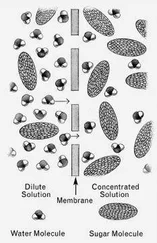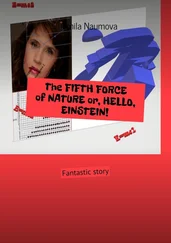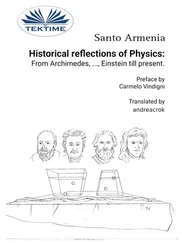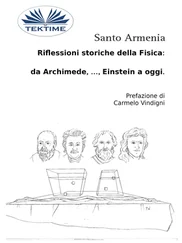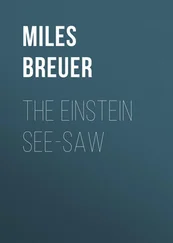It found a way to manipulate atoms through the communication channel, producing and controlling molecule-size Worker machines in the other universe. These first made many more of themselves, then began to produce full-size Workers, Soldiers, Flyers, Queens, and Drones in the other universe. Soon a new Hive Mind formed there, eradicated the Otherness, and assumed control of that world. The Hive Mind had a sister, a sibling in another universe with which to communicate. It was an Otherness that was also Self. This was very satisfying.
After this initial success, the Hive Mind sought to reproduce again in this way, using the new technology it had learned from the non-Self Otherness. It succeeded in the first three attempts, so that Hives in five universes were in communication.
But then something had gone wrong. Seven successive attempts to reproduce had failed. A wrongness had developed in its basic strategy of contact and assimilation. The Hive Mind carefully analyzed the accumulated data of the failed contacts, applying models and simulations in an effort to understand. The simulations suggested that some opposition had developed in the other universes and that this had frustrated the recent efforts.
Now the Hive Mind had a new strategy, and its extra dimensional Lookers had just detected another universe on which the technique could be tried. It marshaled its planetwide resources, anticipating the new apotheosis of Self that it would soon bring to another pristine world.
George Griffin inhaled the scents of pine and sunshine-heated rock, feeling the tensions and stresses of the week drain from his shoulders as he stepped forward to the precipice. Below his vantage point on the peak of Montoisey was a kilometer of steep drop-off. At its base the green and brown Plain of Geneva spread out like an intricately detailed map. He had reached this high platform of bare rock by taking the cable car above the French village of Crozet, riding the chair lift to Montoiseau, then hiking the last three hundred meters lugging his fifteen-kilo backpack, the British Airways baggage tag still attached, that contained his parasail.
He turned to savor the sweeping panorama from this high point of the Jura Massif: the Alps before him dominated by the white spectacle of Mont Blanc, the blue sweep of Lac Leman, and the green richness of the Rhone Valley. This was a beautiful and very special place, a place of power. The bankers, the diplomats, the high-energy physicists of the world all came here to do their important work.
The parasail wing, a bright pink horseshoe of polyester and Kevlar, lay on the rocky slope behind him. George knew from the feel of the wind teasing at his beard that its velocity was all right. Nevertheless, he checked it with his small wind gauge. The LCD readout hovered around twenty-one kilometers per hour, comfortably below the twenty-six danger level that would prevent control.
He was about to do a solo from a cliff, which was reputedly a bad combination. His parasail group in Seattle wouldn’t approve. They considered flights without a partner risky and launches from a cliff edge downright dangerous. But he didn’t much care what they thought. He was always careful, and he trusted his own skills. If something did happen one day, well, c’est la vie. Nobody lives forever, and the danger gave shape and bite to the experience.
He turned from the cliff edge to face the parasail, grasped its front risers and brake lines, and pulled hard. The wing responded, rising like a great pink kite until it was almost overhead, arching above him like a bright pink air mattress designed for a giant. The polyester cells fluttered and sang as the wind off the Plain of Geneva gave them life and form, tugging at the leg loops and chest straps of his harness, urging him upward. George scanned the thin Kevlar lines and the long parallel cells, searching for subtle irregularities or snarls that might kill him. Finding none, he turned and walked to the edge of the precipice. As he reached the edge, the wind rose to meet him and lifted him off. He was flying free, and a rush of exhilaration hit like a great wave.
George reminded himself that flying and falling have identical feelings, at least for a while.
He quickly checked the variometer of his GPS monitor. It was okay, although his rate of descent was a bit too high. He adjusted the speed tabs until the indicated descent rate was where he wanted it. Finally he had time to consider comfort. He moved the molded seat into position, releasing the painful cutting tension of the leg loops, and then deployed the speed bar and moved his feet to it. Now he was relaxed and comfortable and in full control. This was what he had come a third of the way around the world for.
He grasped the thin Kevlar steering lines, made a few experimental swings, then angled out over the Plain in search of the thermal, marked by a spiraling hawk, that he had spotted from the chair lift. He soon found it and began to spiral upward, too. His variometer indicated that his rate of descent was now a negative thirty meters per minute. The updraft had overcome the pull of gravity, and he was truly flying.
George now had time to look around at the familiar landscape near the CERN laboratory where twelve years ago he had lived and worked. He loved this place, the spot where he had spent most of the best years of his life. He was glad to be back, glad to have a free Sunday here.
He studied the French Alps, seeking peaks he had climbed and climbing routes he had used with CERN coworkers years ago. Looking far to the southeast, he could see the city of Geneva at the edge of long Lac Leman, the city’s famous jet fountain making a white exclamation point in the distance. He remembered pleasant walks with Grace through the twisty streets of the old part of Geneva, exploring the little shops and looking for good but inexpensive restaurants. Closer he could see the Geneva airport, where he’d arrived yesterday, and the V-shaped CERN main campus, sprawling across the Swiss-French border and pointing in his direction. To his right he could see the CERN north area, with its hangarlike experiment buildings and crossshaped of&ce complexes. Farther north he could see the town of Gex spilling down the slope of the Jura, and near it he thought he could make out the buildings above the tunnel that contained the old LEP accelerator and the detector, where he had worked for four years before moving to Fermilab. That tunnel, which burrowed under the Jura Mountains, the French countryside, and the airport, now housed the new LHC accelerator and the ATLAS detector, his group’s principal competition.
George pulled on the right control line and stepped on the speed bar, terminating his lazy spiral and angling out toward the CERN campus, searching for another thermal. The view, the solitude, the control, the element of adrenaline-laced danger, it was all wonderful. It made him feel young again.
He recalled that once long ago when he was a student looking for a summer job, a personnel clerk at an employment agency had pointed out that George’s job application form listed his recreational activities as reading, writing, skiing, glider flying, and wind surfing. These, the man advised him, were all solitary activities that branded him as a loner. The major corporations were looking for team players. The man had suggested that George perhaps might want to change his entries to amateur acting, softball, volleyball, and touch football. George had declined.
Dammit, he was a loner. Since adolescence he’d detested team sports. Even paragliding he preferred to do alone, without the bother of arranging to go with a partner or group. He was at his best when he was working on a problem alone, with nobody asking questions or offering distractions, when he could hone his concentration to a white-hot pinpoint focus that cut through the crap and got to the roots of the puzzle.
Читать дальше




